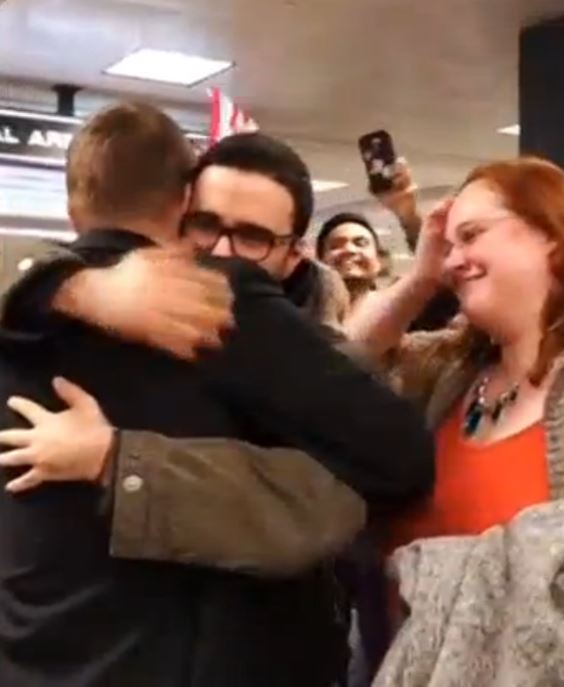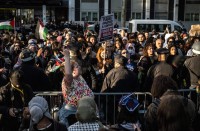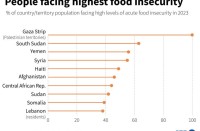
(Reuters) — Travellers were greeted with hugs and tears by family and friends at Washington Dulles Airport in Virginia late on Saturday (January 28) after being detained for hours because they were arriving on flights from one of the seven predominantly-Muslim countries that U.S. President Donald Trump has put on a restricted arrivals list.
In his most sweeping decision since taking office a week ago, Trump, a Republican, put a four-month hold on allowing refugees into the United States and temporarily barred travellers from Syria and six other countries.
Civil rights and faith groups, activists and Democratic politicians were furious and vowed to fight the order.
At Dulles protesters were on hand demanding denouncing Trump’s immigration rules and demanding that the detained travellers have access to lawyers. U.S. Senator Cory Booker joined the protesters.
Capping a day of confusion and chaos and protests in several airports across the country, a federal judge in Brooklyn, New York, granted a temporary reprieve. The American Civil Liberties Union successfully argued for a temporary stay that allowed detained travellers to stay in the United States.
The court action does not reverse Trump’s order, which was criticized by some of America’s closest allies.
Along with Syria, the ban affects travellers with passports from Iran, Iraq, Libya, Somalia, Sudan, Syria and Yemen.
The Department of Homeland Security said about 375 travellers had been affected by the order, 109 of whom were in transit and were denied entry to the United States. Another 173 were stopped by airlines before boarding.






